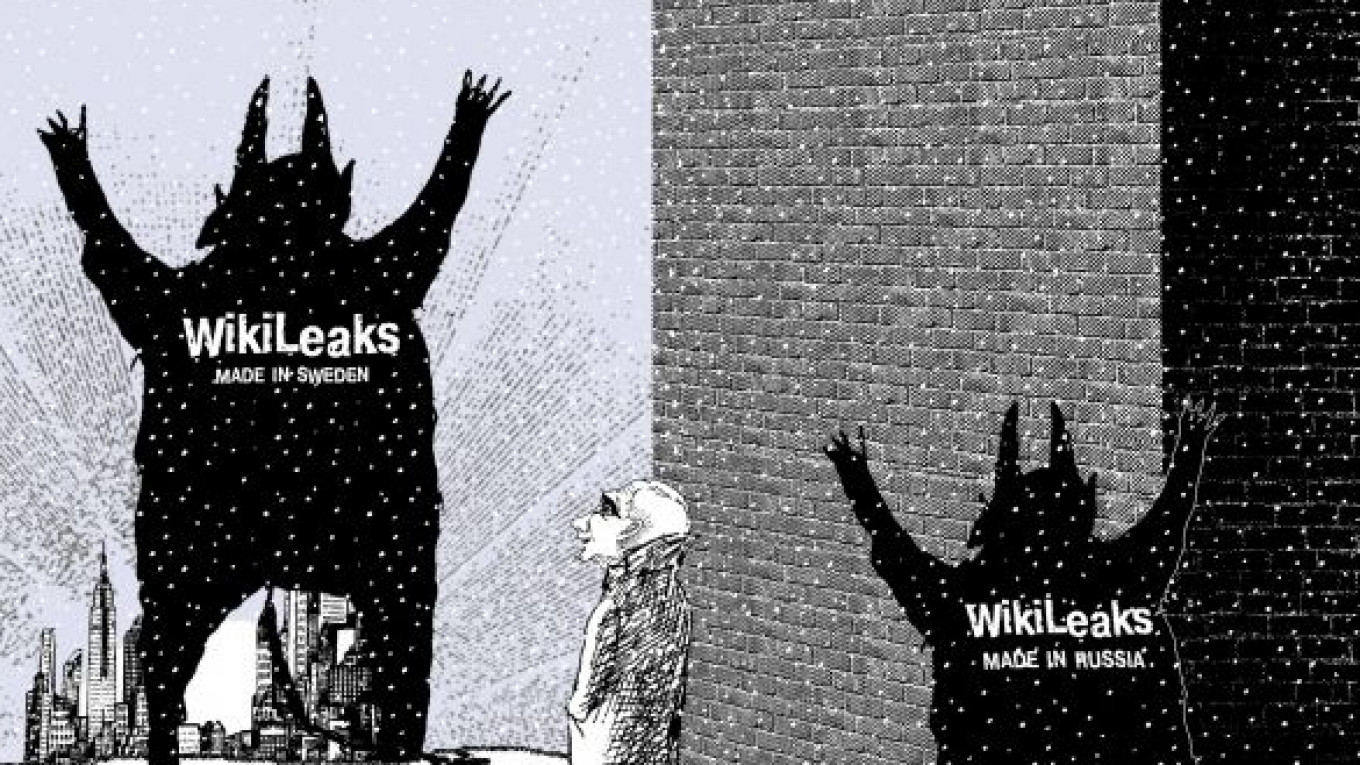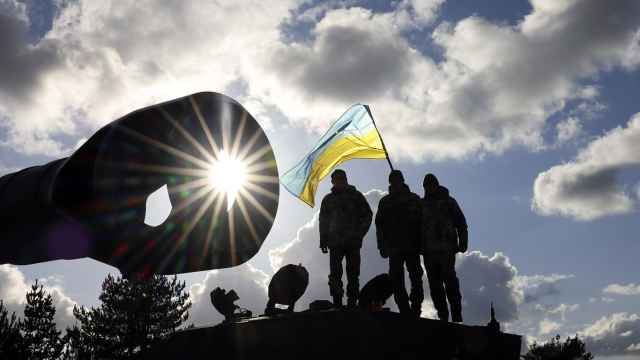Russia's blogosphere has always been a treasure chest for people who love conspiracy theories. On Runet, Holocaust and 9/11 denial are moderate views. So it's no surprise that after the latest batch of documents were published by WikiLeaks, Runet began spreading the theory that Julian Assange was a secret agent of the CIA and that the publications were a controlled leak of information designed to cause trouble for regimes the United States doesn't like.
Like all crazy theories, this one has an ounce of truth at the bottom of it. Although the initial target of WikiLeaks publications was the U.S. government, the first victims were corrupt government leaders, like the heads of the Persian Gulf states, Italian Prime Minister Silvio Berlusconi and Prime Minister Vladimir Putin.
According to diplomatic cables published by WikiLeaks, Putin is the richest man in Russia &mdash and in Europe as well &mdash with $40 billion in secret off-shore accounts. He is reputed to be the co-owner of Gunvor, which exports Russian oil. If that didn't make Putin angry, the derogatory nickname "alfa-dog" given to him in one of the cables must have sent him up the wall. A highly placed anonymous source in the Foreign Ministry seemed to reflect that anger when he warned WikiLeaks that Russia "has a way of turning off this resource forever."
Now WikiLeaks has become a pawn in the "cold war" that is intensifying between the Putin and Medvedev clans. With undisguised pleasure, another "highly placed anonymous source" &mdash this time in the Kremlin &mdash suggested that: "Nongovernmental organizations should consider nominating Julian Assange for the Nobel Peace Prize." The blogosphere believes this statement was made by Natalya Timakova, Medvedev's press secretary.
Russia already has its own "Russian Assange" &mdash the lawyer Alexei Navalny, aka blogger Navalny. Navalny first garnered attention when he defended minority shareholder rights in state corporations. Several weeks ago, he published materials that he obtained from the Audit Chamber regarding Transneft. The leaked materials showed that when Transneft laid the East Siberian-Pacific Ocean pipeline, more than $4 billion disappeared. Navalny calculated that this was the equivalent of 1,100 rubles from every adult in Russia.
The response &mdash albeit indirect &mdash to Navalny's expose came swiftly. Charges were brought against him. Prosecutors claim that when Navalny was an adviser to the governor of the Kirov region, he "used deception to force" the state company Kirovles to sign unprofitable contracts that cost it $1.3 million. Navalny denies this allegation and insists that, to the contrary, he was trying to stop corruption in Kirovles. Navalny, who is now in the United States as a fellow at Yale, wrote: "The main idea behind the lawsuit is to keep me from returning to Russia. But I don't think they will really try to bring those charges against me. They're too obviously a setup. I'm not afraid, and I'll come back to you, my dear corrupt officials."
The plethora of Internet exposes was dubbed "the Navalny effect" in a Dec. 7 comment in Vedomosti by Aleh Tsyvinski and Sergei Guriev, who wrote: "Why are Navalny and other bloggers who expose corruption by the authorities so popular right now? There is a real demand in society for something to counter corruption. More and more people see not only that Russia has no future without victory in the war against corruption, but that corruption costs each of them dearly."
Anonymous followers of Navalny have already appeared. A Russian analogue of WikiLeaks, Rospil.info (the name is based on Russian slang for "kickbacks"), publishes materials on suspect state contracts. For example, the Agriculture Ministry put out a request for bids for a computer database system to store satellite images. It was for 30 million rubles ($972,000), and the system had to be up and running nine days after the contract was signed. The site suggests that these constraints were put in to limit the bidding to one company with close ties to ministry officials. But who knows, maybe Russian programmers are that talented and quick. If science in Russia developed as quickly as corruption, the sky would be the limit.
Victor Davidoff is a Moscow-based writer and journalist whose blog is chaadaev56.livejournal.com.
A Message from The Moscow Times:
Dear readers,
We are facing unprecedented challenges. Russia's Prosecutor General's Office has designated The Moscow Times as an "undesirable" organization, criminalizing our work and putting our staff at risk of prosecution. This follows our earlier unjust labeling as a "foreign agent."
These actions are direct attempts to silence independent journalism in Russia. The authorities claim our work "discredits the decisions of the Russian leadership." We see things differently: we strive to provide accurate, unbiased reporting on Russia.
We, the journalists of The Moscow Times, refuse to be silenced. But to continue our work, we need your help.
Your support, no matter how small, makes a world of difference. If you can, please support us monthly starting from just $2. It's quick to set up, and every contribution makes a significant impact.
By supporting The Moscow Times, you're defending open, independent journalism in the face of repression. Thank you for standing with us.
Remind me later.








